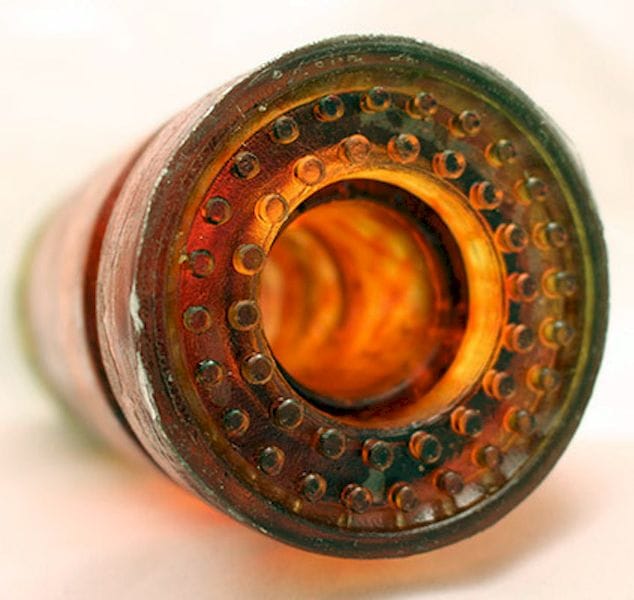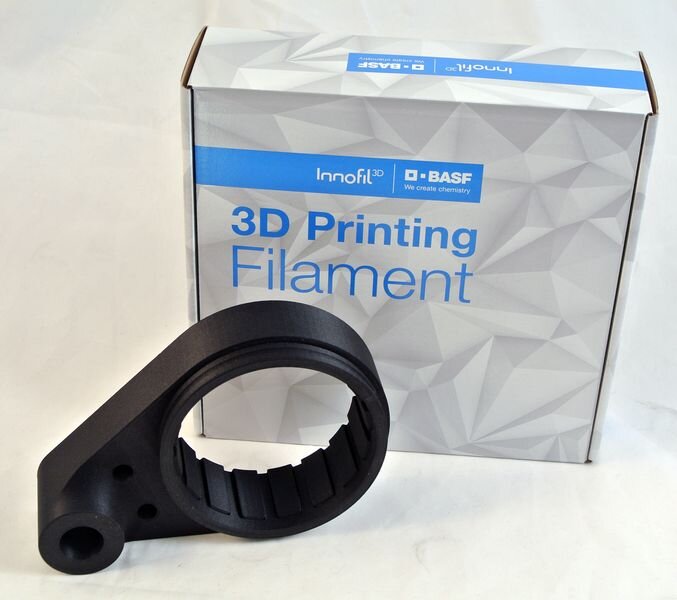![Sample 3D print in ToughRubber [Source: Adaptive3D]](https://fabbaloo.com/wp-content/uploads/2020/05/image-asset_img_5eb09d240032d.jpg)
Royal DSM announced a significant investment in a 3D print material company.
If you’re not familiar with Royal DSM, they are a massive Dutch operation providing solutions in health, nutrition and materials. And in particular, high-performance engineering materials. Currently they offer their own mix of several nylons, including PA6, PA66, PA410, PA4T, PA46, as well as PET, PBT, TPC, and PPS.
Previously they had announced a new carbon fiber-infused nylon material with an unusual CF ratio, and a significant strategic shift towards sustainable solutions for customers.
Now we see they have invested a significant (but unspecified) amount of money into a Dallas-based 3D printer materials company, Adaptive3D. The Series A investment is typically given to successful companies that have proven their concept and have moved out of the initial startup stages. Royal DSM teamed with Applied Materials via their investment arm, Applied Ventures, on this raise.
If you’re not familiar with Adaptive3D, they’ve been around since 2014 and have produce a very unusual 3D printing resin they call ToughRubberTM 30.450. They describe it as:
“For companies using Additive Manufacturing for their products, its complete suite of advantages remains locked to them due to the limited mechanical performance of the materials used. The most common challenge is that product groups must be able to additively manufacture parts that have the high strain, the high strength, and the feel of rubber.
In a mission to overcome these limitations, Adaptive 3D has successfully produced the world’s highest strain photopolymer, the ToughRubberTM 30.450.
This photopolymer resin boasts of being the toughest highest performance SLA 3D printable polymer in the world, delivering advanced mechanical properties that enable extremely resistant functional products and parts.”
This is an interesting product that reinforces our notion that the key to the future of 3D printing is materials targeted at specific uses. While manufacturers of resin 3D printers these days typically offer a handful of resins with their equipment, the future may be more towards more practical materials for engineering purposes as devised by third party companies like Adaptive3D.
But if Royal DSM is already a materials manufacturer, why hook up with another player? It is likely because Adaptive3D offers expertise in resin materials specifically designed for 3D printing, something Royal DSM may not have in-house.
If Adaptive3D was able to design ToughRubber, it’s more than likely they will be able to produce other highly focused engineering resins for 3D printing. That could be a big market as the number of resin-powered 3D printers continue to increase.
Meanwhile, the other player in this transaction is Applied Materials, who, in spite of their company name, focus on semiconductors, solar products and automation software. Nothing directly to do with 3D printing, it seems. However, Om Nalamasu, President of Applied Ventures and CTO of Applied Materials, says:
“Applied Materials is a global leader in semiconductor processing and patterning with light and e-beam technology. Adaptive3D’s photoresins coupled with large-area processing and advanced patterning techniques could potentially deliver robust materials-based solutions at high throughput and low cost across multiple industry verticals.”
So it looks like they are seeing ways to apply 3D printing, and specifically Adaptive3D’s materials, to their own business. This is quite interesting, as we’re always supportive of expanded uses of the technology.
Via Adaptive3D











An inventive designer has developed a method for producing 3D paper objects using recycled paper and 3D printed molds.